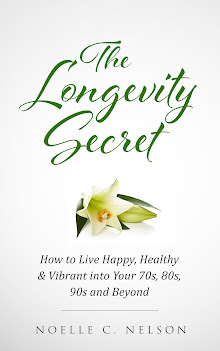The recent “Longevity Issue” of Time Magazine held great
promise—an entire issue devoted to the joy of longevity, how great! Then I read
the very first article title on the cover: “The Alzheimer’s Pill: A radical new
drug that could change old age.” My heart sank. My excitement vanished. Once
again, getting older was automatically associated with decline and dementia.
Don’t misunderstand me: there are numerous individuals
suffering with Alzheimer’s, and I am thrilled that the medical community
continues its earnest resolve to alleviate that suffering and find a cure. What
dismayed me, was the impression so readily embraced by our society, our media,
and just about everyone around, that old age must be a miserable time of
decrepitude.
Not! When you actually look at people in their 80s, 90s and
beyond, there are an astonishing number who are doing very well. Who are
thriving, even into their 100s! For example, George Blevins, won his most recent National Senior Games
singles bowling tournament at age 100. Lillian Weber celebrated her 100th birthday in 2015 by
surpassing her goal of sewing 1,000 dresses for needy children—she sewed 1,051,
all handmade, all personalized.
John W. Donnelly married at 94, toured Europe at 99, and won yet another National Senior Games table tennis championship gold medal—at 100.
Amazing individuals, all three, and yet but a
few examples of the many, many more alive and kicking in our communities. Which
is why, BTW, I just launched a “MeetTheAmazings” Facebook
page—to celebrate the dynamic, thriving, inspiring 60+ers all around us.
What’s terrific, is that science is showing us increasingly ,
how these happy, healthy older
individuals are navigating their decades with such grace.
In a word, it’s attitude. Yes, diet and exercise are
important. But more than anything, more than your genes or your status in life,
how you think and what you feel are what determine your ability to enjoy a
happy healthy long life.
How do you get there? Appreciate what is! Simply put, shift
your focus from what you can’t do, don’t have, and are not, to what you can do,
do have, and are—here and now. Like Marge, of Marge and Gower Champion fame, world-renowned
dancers on Broadway and in movies.
Here’s what Marge says, at
90, in a 2010 documentary with her then dancing partner, Donald Sadler,
also 90, in the studio the two used to rehearse and choreograph original pieces
since working together in “Folies” on Broadway in 2001: “I think it’s kind of
fun to see myself as an old lady . . . All this stuff that’s floating around
the universe about being young. In this society, old, or even middle-aged, are
dirty words. And everybody wants to live eternally young. Well, I gotta tell
you, they’re fighting the wrong cause. They’re gonna get old and they might as
well enjoy it . . . I know I had to learn a very, very important lesson, and
that was to accept every decade for what it gives you, not for what it takes
away. And you can adjust! So you
can’t do falls or lifts, but you can still move with grace.”
Wise words indeed. The more you look for what your
decades give you, for what you can appreciate--right here, right now--the
more likely you are to live a happy, healthy life, throughout your years.
Get your attitude in gear, refuse to live the assumption
that old age must be miserable, and have yourself a simply fabulous life!






